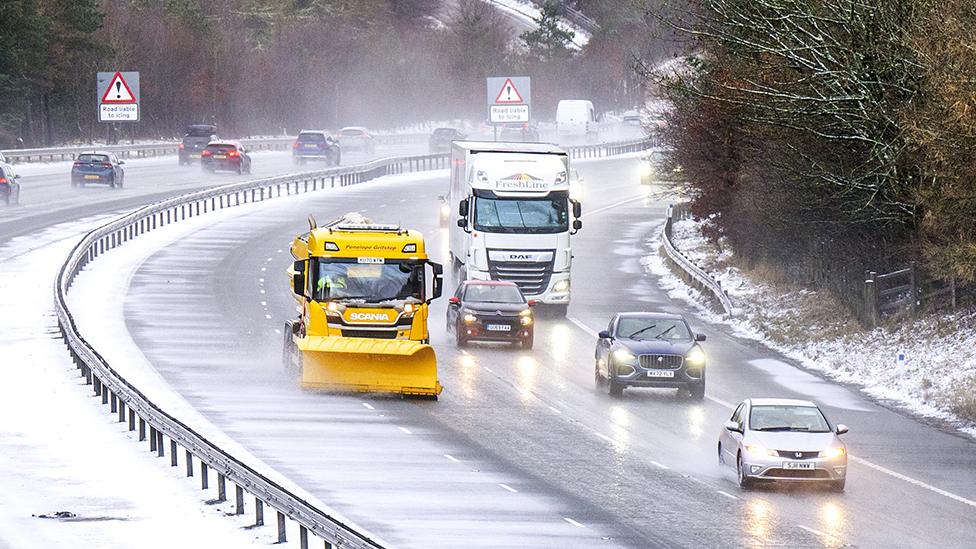Snow disruption: Is my boss expecting me at work?
- Published
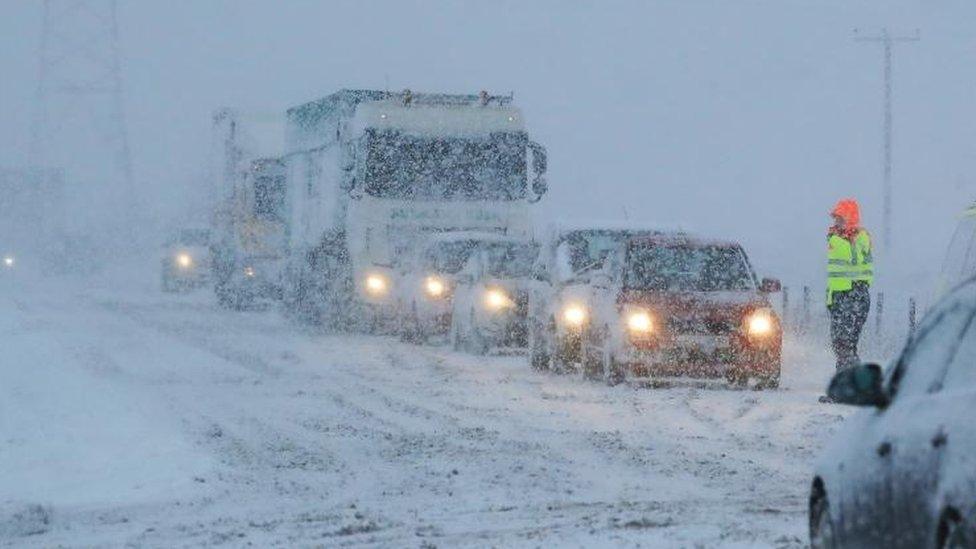
It may not be a return of the Beast from the East, but snow and ice is now causing considerable disruption in the UK.
Hundreds of schools have shut, transport has been disrupted, and people have been told to prepare to change any travel plans.
People whose journey to work is difficult should be aware of their rights if they want to take the day off.
Do I still get paid?
In most cases you are not automatically entitled to pay if you are unable to get to work because of travel disruption or bad weather.
If your employer normally provides your travel to work and this has been cancelled because of the bad weather you should still be paid, according to the employment advice and conciliation service Acas. , external
It is a good idea for employees to remind themselves of their contract. Some jobs may also have a specific clause written in, or have a collective agreement in place, which means an employer will pay staff who cannot get to work owing to circumstances beyond their control.
Some employers might also make discretionary, informal arrangements. For example, they may let employees work from home, or agree that the time can be made up at a later date.
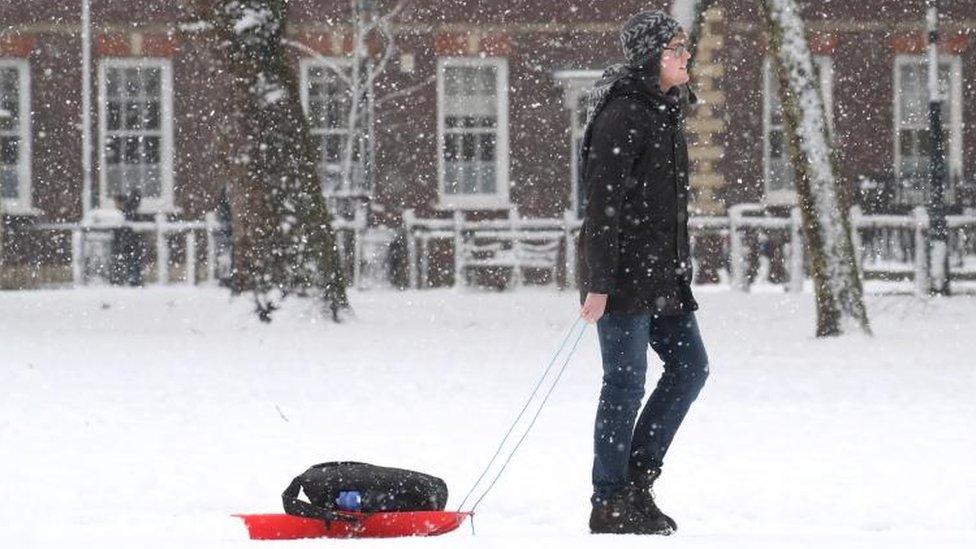
Schools are shut so I have to stay at home. Will I be reprimanded?
No, all employees have the right to take unpaid time off to deal with emergency situations for their children or other dependants.
Lawyers suggest that a school being shut at short notice is likely to be considered an emergency.
Strictly, the day would be unpaid but some employers are more forgiving.
Acas advises, external you talk to your employer as soon as you can to explain that you need to take time off and the likely length of the absence.
It says one option is that you jointly agree to take the day as annual leave so you do not miss out on pay.
Does that mean I can be forced to take the day as holiday, even if I do not have children?
Only with sufficient warning.
The law states that you must be given a warning period of "at least" double the length of annual leave you are being asked to take.
So, if your employer wants you to take one day's annual leave, for example, they would need to give you two days' notice.
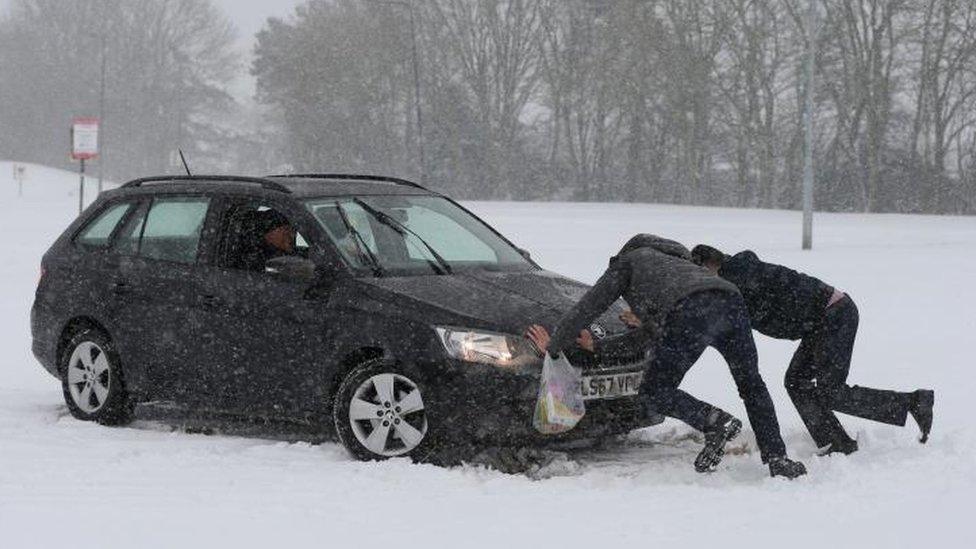
There is an exception - when the workplace has been closed owing to the weather.
In those circumstances an employer cannot demand staff take the time as annual leave. Workers are also entitled to be paid.
The employer can still ask you to work from home, or ask you to go to another workplace that is open if the business has one, according to government advice website Gov.uk., external
Colleagues always say we get sent home when the office gets too cold. Is that true?
No.
The Health and Safety Executive recommends, external a minimum temperature of 16C for offices where the work is deskbound and fairly sedentary. If the work requires physical effort, the minimum recommended temperature is 13C.
These temperatures are not a legal requirement but your employer has a duty to provide a "reasonable" temperature in the workplace.
If low temperatures make it unsafe for workers, then Acas says you should be allowed to wear warmer clothing, take extra breaks to make hot drinks and also be allowed to bring in extra heating options such as portable heaters.
However, if you are vulnerable in any way, such as being pregnant, then you may be sent home to protect your health, and this would usually be on full pay.
- Published31 January 2019
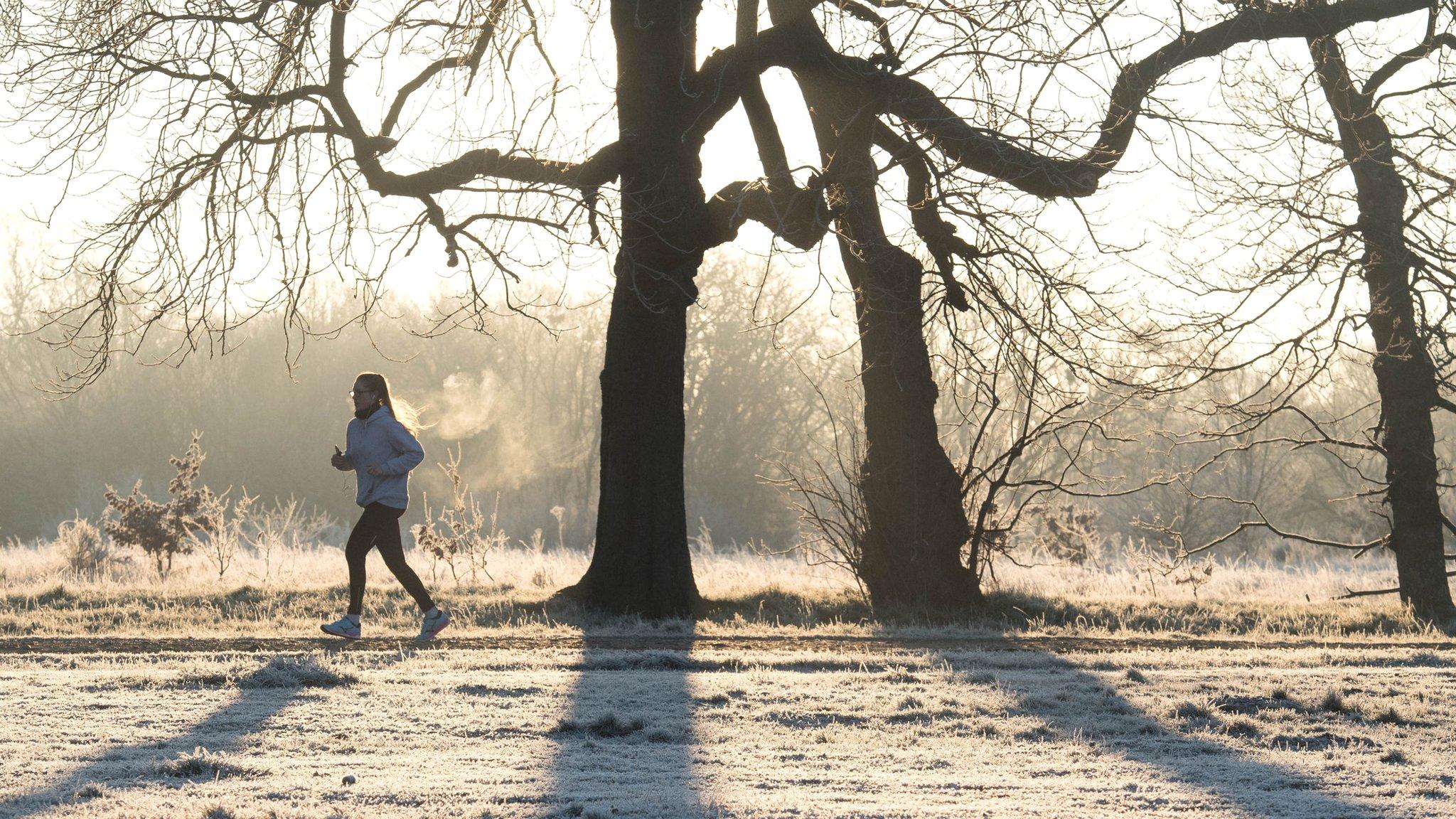
- Published29 January 2019

